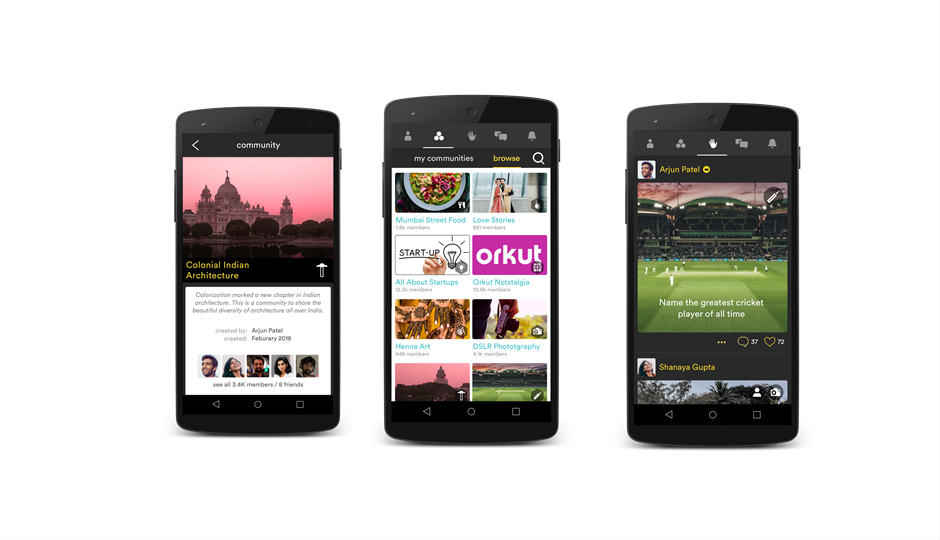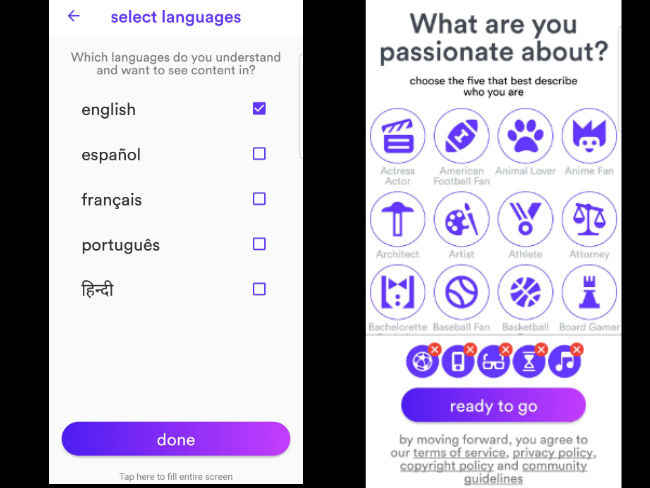Orkut founder’s ‘persona’-focused Hello Network is the perfect alternative to Facebook

While Facebook tries to fix itself, Hello is a good alternative to try out.
Long back when most Snapchat users were babies, India was raging about Orkut. With the second highest user base, India was one of the most important markets for the Google-operated social network. But it lost out in the race to Facebook, Instagram, WhatsApp and the likes and was finally shuttered in September 2014. But the creator of the social network, Orkut Buyukkokten remained passionate about the concept of social networks and soon came out with a new offering — Hello Network.
With the Facebook data scandal in full swing, people are looking for an alternative to the social network. Enter Hello Network which positions itself not as a social network, but an interest-based network and platform that enables meaningful engagements based around how people make friends in the outside world based on common interests.
At the heart of Hello are communities, which were also at the heart of his first venture, Orkut.com. It’s a lot different from Facebook as well. Unlike Facebook’s news feed which throws up posts from friends, family, publishers as well as its own recommendation, Hello will only show posts that are relevant to users based on common interests.
The app, now available on iOS and Google Playstore is the only way to access Hello Network right now. A web version is under work. When you sign up, you have to select five hobbies or ‘personas’ as Hello likes to call it. There are options ranging from Animal Lover, Gaming, Board games, Football and the likes. You can only select five such personas and based on your personas, you will be fed relevant content from people who are equally passionate about the topics you like. You can always switch and change your personas, though.
You also have a feed or ‘folio’ where users posts content or ‘jots’ across common interests. It makes the app highly specific, unlike Facebook which randomises the content based on its own algorithms.
“Facebook serves a very different purpose. Facebook is made for broadcasting updates to your friends and family. It’s also great for communication one on one. It’s also a publishing machine. It’s not for meeting people. You don’t actually meet people on Facebook. You don’t go to Facebook to make friends. With Hello, it’s all about connecting one another and bring people closer together through authentic connections and also through authentic expression. If you look at Hello, we don’t have photo filters. We don’t believe in filters. When people post on social media, they spend five minutes on facetuning to remove their wrinkles out and they use an app to add a six-pack body which is super fake and all that fakeness is what is making society super anxious and depressed because we always feel like we are not doing enough,” Orkut told Digit after the launch.
The app is currently available in five languages including Hindi. When you sign up, you will have to give either your phone number or your email ID along with a password. A photo, your first and last name, gender, birth date and location are also required and mandatory. Your profile is public and everything you post can be viewed by anyone following your ‘persona’. But then, Hello also has virtual currency, called ‘coins’ which you can leverage to post anonymously. You start off with a set number coins but to get more, you either have to unlock new levels (by engaging more in the network) or paying from your own pocket. It’s a nice way of gamifying the experience as well as to keep harmful posts out of the network.
“A lot of apps have a free-to-play model but inside the app, you have micro-payments. We have the same experience on Hello where you can get virtual currency and use that virtual currency to enhance the experience. Users get some free coins when they first sign up and use that to post anonymously. But if you want to post anonymously ten times a day, then you will have to purchase virtual currency with your own money. The reason why we’re doing it is that when you are paying to post content, you end up posting content that’s not offensive and doesn’t tantamount to harrassment or bullying. It kind of like self-balances the system,” Orkut elaborated.
It does feel different from other social network, although it’s not a new concept. The user interface is also quite appealing with a colourful design and the content prominently highlighted. I can be a good way to discover content around things you like. But it’s also quite specific. When you are in the ‘Football’ persona, you will only get posts around football and nothing more. Users tag posts with the ‘persona’, so that they pop up in the respective sections.
There are communities around the personas as well. Users can join, engage and interact with community members as well as post content in the communities. There’s an option to see what’s trending. You can also chat with other community members.
While sharing and discovering content and people have been the crux and the boon of social networking, the most obvious flaw in the concept has been poor data security. Hello seems to take care of the flaw somewhat by allowing users to opt-out of advertising and sharing their location, contacts, and other intimate data. Orkut clearly laid out its business model and how it prevents data to leak out of the network to third parties.
"On Hello, you explicitly say the five things you are most passionate about. So we don’t need to actually try to guess what people are interested in. That way, it’s very easy to target users. We’re not trying to use machine learning and AI and do that creepy behaviour where you do something on Hello and it goes somewhere else on the internet,” he said.
Orkut promised the platform will always remain free to use which could indicate that the users are the actual products, like in other social media apps. But it doesn’t always have to depend on serving ads to make money. Hello’s virtual currency network, Orkut believes, will make money for the company. There are ads as well, which will be targeted based on the personas. According to Orkut, this removes the ambiguity and the guess-work other networks have to indulge in which is why all that intimate data is actually needed.
Hello’s feed, or ‘folio’ is also quite different from Facebook. It centers around Karma points which users get when other people like or comment on your profile and posts. Users can also complete specific challenges to unlock ‘achievements’. Posts are distributed to users based on their karma.
“We have a very different way we propagate content. It’s all based on your reputation and your karma system. Content gets distributed if you have a good reputation. If you have positive interactions from people and your content, we have a system that takes care of that. There are tools that are part of the customer support team to moderate content as well as users who flag hateful content.”
In the wake of the Facebook data leak, where users have been looking for an alternative, Hello comes just at the right time. We will be trying out the app more in the next few days and ‘jot’ down our thoughts on it.





